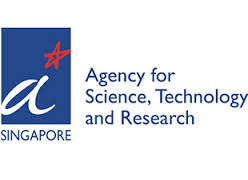 The Agency for Science, Technology and Research (A*STAR)’s Genome Institute of Singapore (GIS) is launching a novel system able to connect large databases and integrate complex information in order to support physicians to conduct diagnosis and treatment choices. OncoIMPACT is a breakthrough discovery in the field of personalized medicine, particularly designed to treat cancers such as melanoma.
The Agency for Science, Technology and Research (A*STAR)’s Genome Institute of Singapore (GIS) is launching a novel system able to connect large databases and integrate complex information in order to support physicians to conduct diagnosis and treatment choices. OncoIMPACT is a breakthrough discovery in the field of personalized medicine, particularly designed to treat cancers such as melanoma.
The system was developed by GIS scientists to facilitate the work of physicians, as well as improve both cancer diagnosis and treatment. OncoIMPACT gathers cancer omits information as well as models provided by hundreds of patients, which should increase a swift examination of genetic cancer mutations.
“We are particularly excited about OncoIMPACT’s ability to take into account the unique genetic makeup of each patient to predict treatment targets,” said the lead investigator in the study, Niranjan Nagarajan, who is also the associate director of computational and systems biology at GIS. “It allows us to crunch massive cancer genome datasets in an integrative and model-driven fashion to distill them down to the few key driver mutations.”
Johannes Schumacher, an assistant professor at the Institute of Human Genetics at the University of Bonn, also believes that since “integration of different ‘omits’ datasets for the identification of cancer driver genes is a challenge,” OncoIMPACT will be able to fulfill “a gap in integrative analyses and provides the opportunity to revisit large complex datasets for the identification of disease driving genes.”
The findings of A*STAR research for the development of OncoIMPACT were recently published in the article “Patient-specific driver gene prediction and risk assessment through integrated network analysis of cancer omics profiles” in the Nucleic Acids Research journal. The institute submitted the system to be used in over a thousand cancer types, including not only melanoma, but also glioblastomas, prostate, bladder and ovarian cancers.
The scientists were able to demonstrate its proof-of-concept through a series of driver mutation signatures, in order to anticipate the results of clinical cancer treatment in patients. Therefore, OncoIMPACT is seen as an option to the tests currently conducted that are focused on RNA and protein levels, since DNA analysis can prove more reliable.
“Our hope is to create a resource for cancer researchers and clinicians in Singapore and around the world. We envisage a future where expert systems such as OncoIMPACT can leverage genomic data generated worldwide and contribute to personalized and targeted medicine in Singapore,” added Nagarajan.
Despite the latest improvements in personalized medicine, there are still obstacles related to genetic information management and review as well as its integration with patient data — problems that the system aims to overcome. “With the availability of large amounts of genetic data, it is difficult to focus our attention on the real cause and drivers in cancers,” explained the principal investigator of the Cancer Therapeutics Research Laboratory at the National Cancer Centre of Singapore (NCCS), Gopal Iyer.
“There are a number of algorithms that help narrow this search down in groups of cancers. OncoIMPACT, however, is different as it can focus these analyses on a single patient. This is the first step for true treatment individualization: if we can uncover the drivers behind a tumor in a specific patient, we can ask if this can then be treated with specific drugs,” added Iyer.
The development of OncoIMPACT was the result of prior efforts to create a way of connecting patients’ symptoms as well as genome sequences to determine causal genes. Previously, A*STAR had already developed the Phen-Gen system for rare diseases, however, it was unable to function in the emerging area of integrative omics, in which complex and multi-dimensional data bases are examined together with sophisticated algorithms in order to demonstrate the novel biological and medical insights.
The team will now continue its studies to create a complete map of driver mutations across cancers. In addition to Nagarajan, other authors of the study are Denis Bertrand, Kern Rei Cheng, Faranak Ghazi Sherbaf, Anja Kiesel, Burton K. H. Chia, Yee Yen Sia, Sharon K. Huang, Dave S.B. Hoon, Edison T. Liu, and Axel Hillmer.


